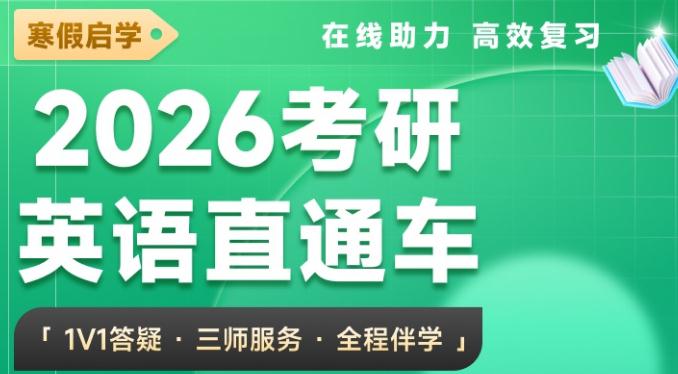1998-2022 ChinaKaoyan.com Network Studio. All Rights Reserved. 滬ICP備12018245號
天津大學管理與經濟學部研究生導師:張連營
天津大學管理與經濟學部研究生導師張連營介紹如下:
工程管理系 教授
電子郵箱:tjzly126@126.com
研究方向:IPD項目交付模式;工程項目多目標優化。
個人簡介
【學術兼職】
[1] 全國工程碩士項目管理工程領域協作組副組長
[2] 《項目管理技術》、《設備監理》等期刊編委
【社會任職】
[1] 中國人民解放軍裝備采購院校教學協作專家組成員
[2] 中國設備監理協會理事
【承擔科研項目】
[1] IPD模式下參與方合作困境的過程演化及其治理機制研究,國家自然科學基金項目(批準號:71572126),2016.1-2019.12
[2] IPD項目交付模式下風險分擔機制與理論模型研究,國家自然科學基金項目(批準號:71272146),2013.1-2016.12
[3] “農村能源自維持住宅關鍵技術集成研究與示范”子課題:能源自維持住宅原型中試及虛擬建造工本定價研究,國家科技支撐項目子課題,(批準號:2013BAL01B02-3),2013.11 -2016.10
[4] 基于遺傳免疫微粒群算法的工程項目多目標綜合優化研究,國家自然科學基金項目(批準號:70871088),2009.1-2011.12
[5] 工程咨詢術語標準的相關問題研究,中國設備監理協會,2007.6-2008.12
[6] 工程咨詢標準體系研究,中國設備監理協會,2007.1-2009.12
[7] 衡水市城鄉物流及服務業發展規劃研究,衡水市,2005.12-2007.6
【企業合作項目】
[1] 基于精益建造的高速公路綜合交易管理模式及其應用研究,天津市賽英工程建設咨詢管理有限公司,2011.9-2016.12
[2] EPC工程項目風險管理研究, 廣聯達軟件股份有限公司,2010.6-2012.12
[3] 源祥集團公司發展戰略研究,源祥集團,2004.12-2006.6
【代表學術論文】
[1] Lianying Zhang, Xiang Zhang. SVM-Based Techniques for Predicting Cross-Functional Team Performance: Using Team Trust as a Predictor, IEEE Transactions on engineering management, 2015, 62(1): 114-121.
[2] Lianying Zhang, Jiajia Cheng. Effect of Knowledge Leadership on?Knowledge Sharing in Engineering Project Design Teams: The Role of?Social Capital, Project Management Journal,
46(5), 111–124, 2015
[3] Lianyang Zhang, Xiaoyan Huo. The impact of interpersonal conflict on construction project performance: a moderated mediation study from China, International Journal of Conflict Management, 2015, 26(4): 479-498.
[4] Yanfang Sun, Lianying Zhang. Balancing public and private stakeholder interests in BOT concessions: minimum revenue guarantee and royalty scheme applied to a water treatment project in China, Journal of Construction Engineering and Management, 2015, 141(2). DOI: 10.1061/(ASCE)CO.1943-7862.0000930.
[5] Zhang Lianying, Zhang Zhen. The effects of incentive mechanism on knowledge management performance in China: the moderating role of knowledge attributes, Project Management Journal, 2014, 45(2): 34-47.
[6] Zhang Lianying, Li Fei. The impact of risk perception on developing incentive systems for relational contracting, KSCE Journal of Civil Engineering, 2014: 1-11.
[7] Lianying Zhang, Fei Li. Risk/reward compensation model for integrated project delivery, Inzinerine Ekonomika-Engineering Economics, 2014, 25(5): 558–567.
[8] Lianying Zhang, Jiajia Cheng, Danfeng Wang. The influence of informal governance mechanisms on knowledge integration within cross-functional project teams: a social capital perspective, Knowledge Management Research & Practice, 2014.
[9] Lianying Zhang, Jingjing Du, Shushan Zhang. Solution to the time-cost-quality trade-off
problem in construction projects based on immune genetic particle swarm optimization,
Journal of Management in Engineering, 2014, 30(2): 163-172.
[10] 何立華, 張連營. 改進的模糊網絡關鍵路徑法. 系統工程理論與實踐, 2014, 01:
190-196.
[11] Zha Hong, Zhang Lianying. Fuzzy flexible resource constrained project scheduling based on genetic algorithm, Transactions of Tianjin University, 2014, 20( 6): 469-474.
[12] 何立華, 王櫟綺, 張連營. 基于聚類的多屬性群決策專家權重確定方法. 運籌與管理,
2014, 23(06): 65-72.
[13] Lianying Zhang, Xiang Zhang. Multi-objective team formation optimization for new product development, Computers & Industrial Engineering, 2013, 64(3): 804-811.
[14] Lianying Zhang, Li Yanwei, Qiong Wu. Evaluation on collaborative satisfaction for project management team in integrated project delivery mode, Journal of The Institution of Engineers (India): Series A, 2013, 94(2): 109-115.
[15] Zhang Lianying, Weijie Fan. Improving performance of construction projects: A project manager's emotional intelligence approach, Engineering, Construction and Architectural Management, 2013, 20(2): 195-207.
[16] 張連營, 岳巖. 工期—成本—質量的模糊均衡優化及其Pareto解. 同濟大學學報(自然科學版), 2013, 02: 303-308+316.
[17] 張連營, 張振. 基于合作績效影響差異的集成管理團隊關鍵指標分析, 科學學與科學技術管理, 2013, 34(07): 166-172.
[18] Lihua He, Lianying Zhang. Dynamic priority rule-based forward-backward heuristic algorithm for resource levelling problem in construction project, Journal of the Operational Research Society, 2013, 64(8): 1106-1117.
[19] Zhang Lianying, He Jing, Zhang Xinxing. The Project Management Maturity Model and Application Based on PRINCE2. Procedia Engineering, 2012, Vol.29, 3691-3697.
[20] Lianying Zhang, Qiong Wu, Chen Chen and Yan Yue. Solution for the Nonlinear Multi-Objective Model in Construction Projects Using Improved Particle Swarm Optimization. Research Journal of Applied Sciences, Engineering and Technology, 2012, 4(19):3565-3573.
[21] Lianying Zhang, Yuan Gao. Safety Culture Model and Influencing Factors Analysis in Construction Enterprises of China. Research Journal of Applied Sciences, Engineering and Technology, 2012, 4(18):3297-3312.
[22] 孫燕芳,張連營,基于可持續發展觀的公共項目投資社會折現率的確定. 經濟體制改革,2012(3),174.
[23] 張連營,欒燕,鄒旭青,工程項目工期-成本-質量均衡優化,系統工程,2012.3,Vol.30,No.3.
[24] 孫燕芳,張連營,韓海峰.公共項目公私合伙制中政府保證的會計問題研究.財經理論與實踐,2011,Vol.32,No.172,62-66.
[25] 張連營,趙旭.工程項目IPD模式及其應用障礙.項目管理技術,2011,Vol.9,No.1,13-17.
[26] 張連營,從社會責任國際標準看我國建筑企業社會責任管理體系的構建,天津大學學報,2007.9 VOL.9,NO.5, 416-419.
[27] 張連營,王爭鵬.伙伴關系模式的發展以及對中國建筑業的啟示.中國工程科學,2006.8,Vol.8,No.8,7-11.
[28] Zhang Lianying. Analysis of the Diversity of Population and Convergence of Genetic Algorithms based on Negentropy.系統工程與電子技術(英文版),2005,Vol. 16,No.1,215-219.
[29] 張連營,張金平,王亮.工程項目資源均衡的遺傳算法及其MATLAB實現.管理工程學報,2004,Vol.18 No.1,52-56.
[30] 張連營,王亮,呂文學.網絡計劃的模糊分析.天津大學學報(自然科學版),2004,Vol.37 No.2,175-178.
[31] 楊湘,張連營,張杰.工程項目工期—成本綜合模糊優化.土木工程學報,2003,Vol.36 No.3,46-50.
【專著】
[1] 張連營主編.項目管理.北京:高等教育出版社,2012年6月.
[2] 張連營主編.設備工程監理技術與方法.北京:中國人事出版社,2010年3月.
[3] 張連營主編.項目管理概論.北京:清華大學出版社,2008年10月.
[4] 張連營主編.職業健康安全與環境管理.天津:天津大學出版社,2006年12月.
【所獲獎項】
[1] 1999年獲得天津大學華為獎教金
[2] 1998年獲得中石油科技進步獎
來源未注明“中國考研網\考研信息網”的資訊、文章等均為轉載,本網站轉載出于傳遞更多信息之目的,并不意味著贊同其觀點或證實其內容的真實性,如涉及版權問題,請聯系本站管理員予以更改或刪除。如其他媒體、網站或個人從本網站下載使用,必須保留本網站注明的"稿件來源",并自負版權等法律責任。
來源注明“中國考研網”的文章,若需轉載請聯系管理員獲得相應許可。
聯系方式:chinakaoyankefu@163.com
- 2026考研英語全程班 6班
- 權威高配師資親授技巧,教研千錘百煉科學提分。直錄播課相結合精講互動二合一,專業團隊精細化作文批改。講練結合,隨學隨練穩步提升。支持試聽~
- 主講團隊:王江濤、譚劍波、董仲蠡、許聰杰、陳志超、潘赟、鄭艷彤、易熙人

掃碼關注
了解考研最新消息
<video id="abmqw"></video>












